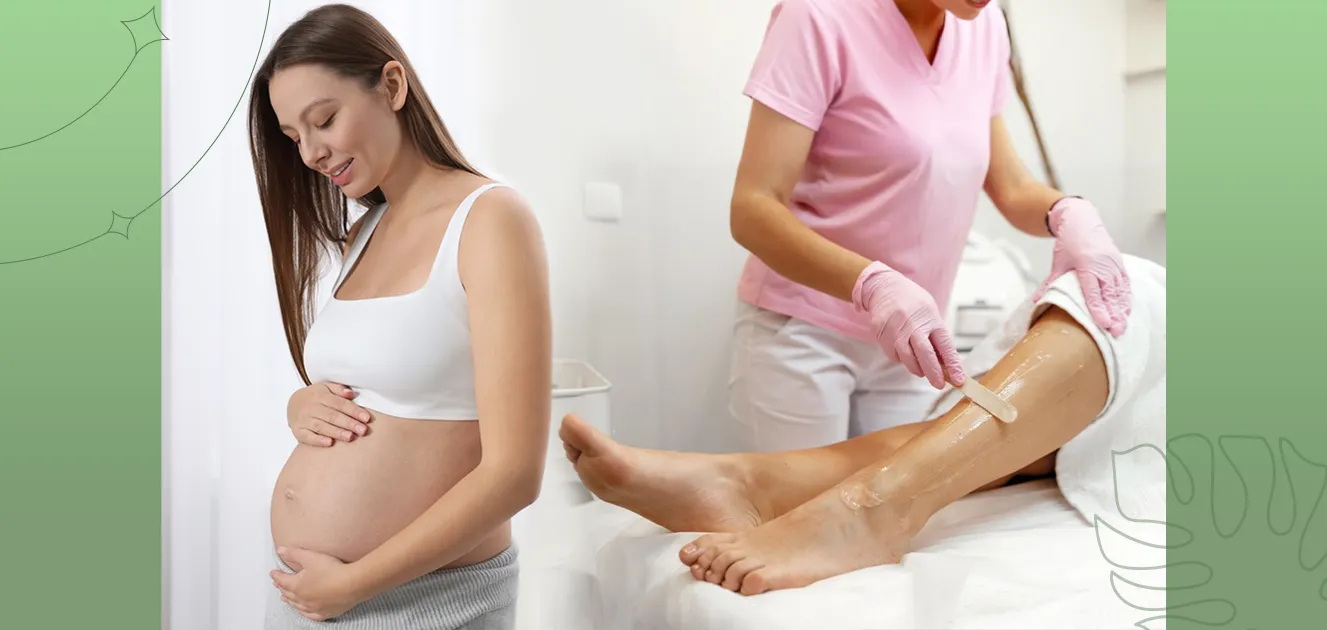Pregnancy is a time of incredible transformation—physically, emotionally, and yes, even aesthetically. With the multitude of changes happening in your body, some might catch you off guard. Among these surprises? A surge in hair growth, sometimes in areas you never expected. As a result, many women start to wonder: Can you get waxed during pregnancy? Is it safe to choose waxing as your go-to hair removal method while nurturing your little one?
The short answer is yes. Waxing during pregnancy is generally safe. However, as with everything pregnancy-related, there are a few important details to consider to ensure it’s done safely and comfortably. So, let’s break it down.
Hormones, Hair, and Everything in Between
Pregnancy comes with its fair share of physical changes, some more pleasant than others. Along with your growing bump and that pregnancy glow, you may notice another side effect: unwanted hair growth. Those fluctuating hormones can cause hair to sprout in unexpected places—underarms, the bikini line, even your face and back. While this new hair growth is temporary, it can be a bit of a nuisance.
The good news is that your hair and nails will typically return to their pre-pregnancy state about six months after you give birth. Until then, if you’re looking for ways to manage the fuzz, hair removal during pregnancy is definitely an option, with waxing being one of the more popular methods.
Is Body Wax Treatment Safe in Pregnancy?
So, what about body wax treatment? Is it safe in pregnancy? Yes, it is. Whether it’s your legs, underarms, or bikini line, waxing is considered safe as long as proper hygiene and precautions are taken. However, there are some important factors to keep in mind, particularly when it comes to your heightened sensitivity during pregnancy.
Skin Sensitivity and Safety Considerations
Pregnancy increases blood flow and fluid retention, making your skin more sensitive. As a result, waxing during pregnancy might feel more painful than usual. If this is your first time getting waxed, it may not be the best time to start. But if you’re already familiar with waxing, be prepared for the possibility of a bit more discomfort.
Before getting waxed, speak to your esthetician about your pregnancy and ask for a patch test to check how your skin reacts. You may also want to consult your healthcare provider about taking a pregnancy-safe pain reliever like paracetamol, as recommended by the NHS, to ease any discomfort before your session.
Hygiene is Key
Whether you’re waxing at home or visiting a professional, cleanliness is essential. Make sure the waxing spa uses fresh wax and strips for every client and doesn’t “double dip” applicators into the wax. Reused tools increase the risk of bacterial infections, which are particularly concerning during pregnancy. If you’re unsure where to go, consider a reputable spa like Meridian Spa Greenwich, where hygiene and professionalism are top priorities.
For at-home waxing, the NHS advises that the wax should not be too hot, and you should take extra care to avoid burns, especially as your belly grows and makes reaching certain areas more difficult.
Hard vs. Soft Wax: What’s Best?
Your skin may be more reactive during pregnancy, so choosing the right type of wax matters. Hard wax is often gentler, as it sticks to the hair rather than the skin, making it a better option for sensitive areas like the bikini line or underarms. Soft wax, which uses strips, may be more suitable for larger areas like the legs but can be harsher on sensitive skin. Your esthetician can help you decide which type of wax is best for you.
What About Laser Hair Removal During Pregnancy?
If waxing sounds too uncomfortable or risky, you might be tempted to explore other options, like laser hair removal. However, most experts recommend avoiding laser treatments during pregnancy. There’s not enough research to confirm whether it’s safe for pregnant women, and the hormonal changes during pregnancy can make your skin more prone to pigmentation changes, which laser treatments could worsen.
That said, after you’ve given birth and your hormone levels have stabilised, laser hair removal can be a long-term solution for unwanted hair. At Meridian Spa, we offer professional and safe laser hair removal treatments for when you’re ready to explore this option post-pregnancy.
Post-Waxing Care
Once your waxing session is done, your skin will likely feel more sensitive. Avoid direct sunlight, tanning, and exercise for at least 24 hours. Applying a pregnancy-safe moisturizer can help soothe the skin and reduce redness or irritation.
The Takeaway
Pregnancy comes with its fair share of surprises, including an uptick in hair growth, but waxing remains a safe and effective hair removal option as long as you take the right precautions. Whether you prefer waxing or are considering other options like laser hair removal after your pregnancy, always consult a professional and listen to your body’s needs.
If you’re looking for a trusted and hygienic spa, Meridian Spa offers expert waxing services, along with post-pregnancy laser hair removal treatments to help you feel your best.
So, can you get waxed during pregnancy? Absolutely, but with a little extra care and attention. After all, pregnancy is a time to nurture yourself, inside and out.
